

For a prolonged safe, trouble free and efficient operation of machinery and system on board ship, it is important that there is proper maintenance, a record of correct parameters and prevention of impurities from entering the systems. The first and second points are a part of routine duties; however, for preventing impurities from entering, it is important that every system must have filters and strainers which help in removing contamination from the system.
The filter is a fine mesh screen which is used to remove impurities from oil, water, and air on the ship. Filters are mounted in pairs as a duplex system so that one can be used and other is kept on standby at a time. The filter can be utilized both in low pressure (suction) and discharge (high pressure) side of the system and is used to remove the smallest part of dirt which is carried away in the system. The cleaning frequency of filters depends on the type of the filter and is decided by the manufacturer. The schedule is generally included in the planned maintenance system on board.
The strainer is a type of filter used mostly on low pressure or suction side and is used to remove large contamination particles from the system. It is because the mesh screen openings in the strainer are bigger in size and are similar to those of coarse filter. If the suction condition is critical, then the strainer can be fitted on the discharge side. It will purely depend upon the make and recommendation of the manufacturer. Usually, strainers are cleaned whenever they are opened up or when the pressure drop on the filter side is high.
Type of Filters Used on Ship
Types of filters depending upon the Media
1) Hydraulic Filter: Hydraulic filters are handy for removing solid contamination from lube and fuel oil systems of marine machinery. Without filters in the lube or fuel oil system, the internal machinery parts, bearings, piston, rings, liners, etc. can get damaged, which will result in the inefficient working of the machinery. Different applications of hydraulic filters are:
a) Fine Mesh Screen Filter: It is the most commonly used filter in lube and fuel oil systems on board. It can be used both on suction and discharge side of the system. It is used in cylinder lube oil line, main engine and auxiliary engine fuel oil line & diesel oil line, boiler fuel oil line and in different lube oil systems on board, etc.
b) Magnetic filter: This normally consists of filter elements which are magnetic in nature and which help in catching fine metal or ferrous particles that run in the system. These elements are surrounded by a basket screen which also acts as a filter and simplifies the cleaning of the filter. Magnetic filters are used in lube oil system.
c) Auto Back Wash Filter: In auto backwash filters, when the pressure difference increases, an indication of filter getting clogged, the auto system cuts off the filter and opens the bypass. The auto wash takes place with the help of an electric motor connected to a shaft which cleans the filter. During this operation, the drain of the filter gets open.
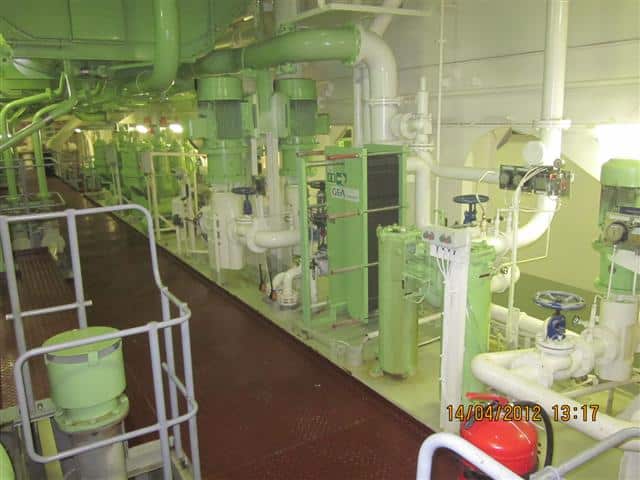

d) Centrifugal filter: As the name suggests, these filters work on the principle of centrifugal force removing high-density fluids and impurity from the oil. It is normally used for lube oil systems. Most of the Auxiliary engines have attached centrifugal filters.
e) Manual clean filter: In the manual filter, there is a handle with a shaft which is connected inside to a filter. When the pressure difference increases, the filter unit is bypassed, and the filter is cleaned manually with the help of a lever.
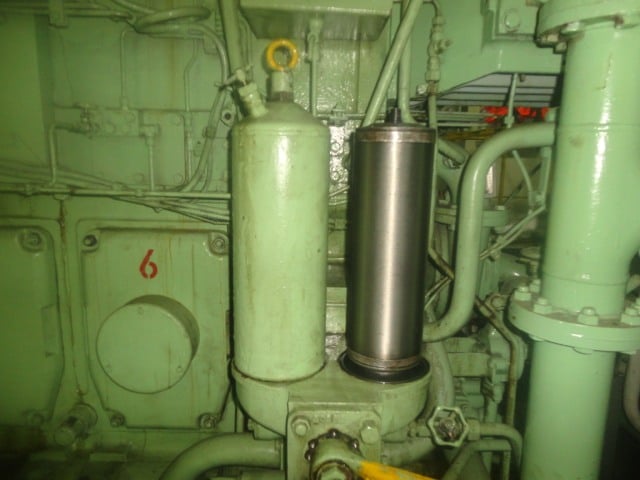

2) Water Filter: The sea water and fresh water systems on board ship are provided with line filters to trap the solid impurities flowing in the system. Normally the sea water side has more numbers of filters incorporated in the line as compared to the fresh water system as the later is a closed system. The different applications for water filters are:
a) Sea chest Strainer: Sea chest is fitted in the main suction line of the sea water inlet system to the ship. The filter casing is normally fitted with marine growth preventive system. Normally a strainer is used in the sea chest so that the flow of water in the sea line is always maintained.
b) Fire line suction filter: Fire pump has a suction filter to avoid any solid impurity to come inside the fire line. The filter mesh screen has a moderate opening screen hole for the flow of water.
c) Bilge line filter: All the bilge well suctions are provided with a strainer as the well contains the maximum solid contamination. The filter may have a bucket screen or a plate screen to trap solid impurities like rags etc.
d) Fresh water system filter: All the freshwater systems such as drinking water system, sanitary water system, boiler feed water system etc. are incorporated with a line filter on the suction side of the pump.
3) Air Filter: These filters are used on board so that the compressed air supplied to different machinery and systems get pure air for efficient operation of the same. The different application of the air filters are:
a) Control air filter: The control air system or the pneumatic control of the propulsion plant is very critical. It must not contain any moisture for it may block the passages in the system and the main propulsion plant may not start or reverse etc. The control air filter removes the moisture and collects it in a chamber from where it can be drained.
b) Turbocharger filter: Turbocharger filters are made of copper mesh which is used on the blower side so that the air sucked by the blower must not carry any solid or carbon particles; else it may damage the blades and reduce the combustion efficiency.
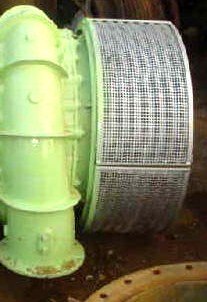

c) IG system scrubber filter: I.G system scrubber plant contains moist exhaust. To remove the moisture from the same, a demister filter is used.
d) Compressor filter: All the air used on board is supplied by main or auxiliary air compressor on board. The air is sucked into the compressor through an air filter located in the first stage and is made up of paper and metal mesh.
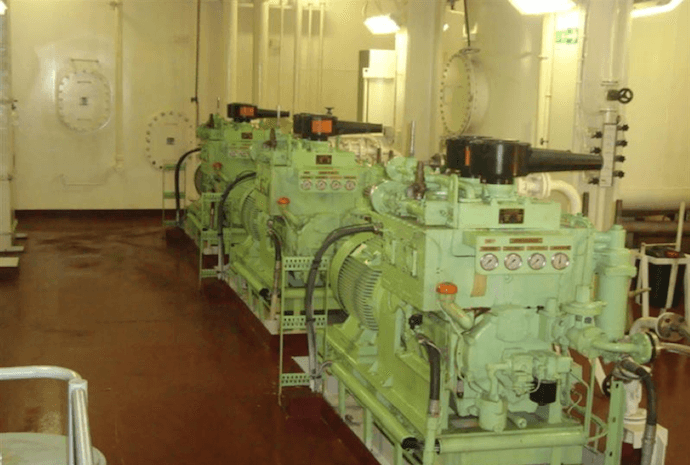

4) Special filters: Some special filters which are used on board the ship are:
a) OWS 1st and 2nd stage filter: The filters used in OWS are expensive and normally of the disposable type. The first stage filter normally consists of felt filter. The second stage filter uses coalescer for bringing down the oil content to below 15 ppm.
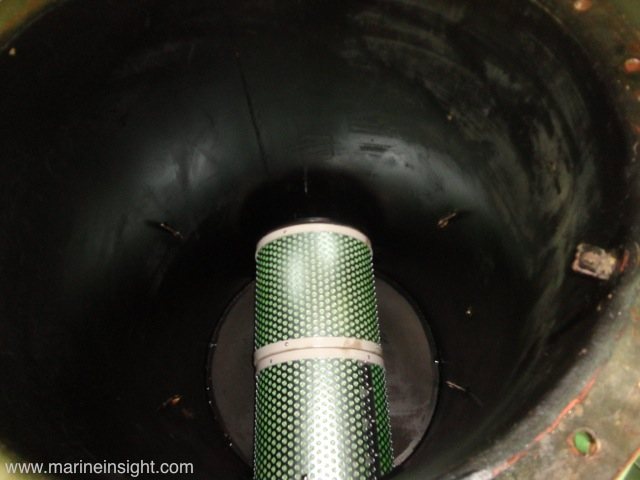

b) Oxygen analyzer filter: Oxygen analyzer is an instrument which is used to measure oxygen content in enclosed area. It consists of a probe fitted with an integrated air filter to remove dirt from the air drawn.
c) Cartridge filter: This type of filters are used for portable generators, auxiliary compressors and a power pack on board and can be used for fuel oil and lube oil filtration. They are usually of the disposable type and can be used only once.










We believe that knowledge is power, and we’re committed to empowering our readers with the information and resources they need to succeed in the merchant navy industry.
Whether you’re looking for advice on career planning, news and analysis, or just want to connect with other aspiring merchant navy applicants, The Marine Learners is the place to be.